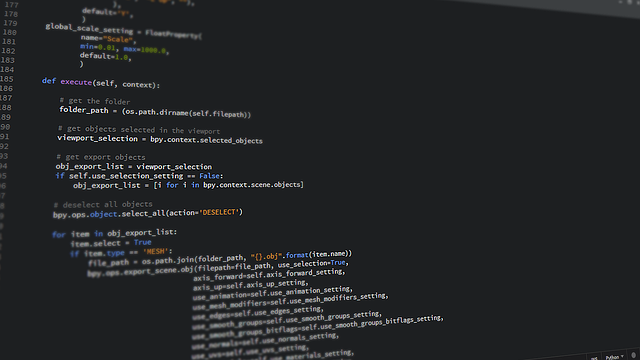Today, with job dissatisfaction at an all-time high, many people are making the bold move (or at least formulating a working plan) to become employer-independent entrepreneurs, especially as programmer consultants.
The usual path into software development is with a related degree earned at the end of a four-year college program (about 75% of developers have a minimum of a bachelor’s degree). However, not everyone is willing to commit four years of their life to college. Many more are even less willing to shoulder the financial burden of a degree program. Luckily, that’s okay because there’s something to fill the gap.
The ‘gap’ is a tailor-made programming language, Python, and an indispensable alternative learning track, Python programming bootcamps.
Table of Contents
Enter the Python programming language
Anyone searching for an entry programming language absolutely cannot do better than Python. Of all the high-level computer languages, Python is the one beginners can learn most easily. Python has a range of features that make it straightforward to read and write and many characteristics that help programmers accomplish complex tasks with ease.
Python is also very popular with businesses. This popularity is because it takes less effort and time to develop websites and applications with Python, which means lower costs for businesses.
Finally, Python offers probably the widest range of career opportunities of any programming language because of its incredible flexibility.
What is a Python programming bootcamp?
A Python programming bootcamp (henceforth, Python bootcamp) fills the gap between a four-year software development degree program and a viable career as a programmer, only over a far briefer duration.
Python bootcamps are short training programs that provide learners with Python technical skills. Bootcamp graduates are technically competent and ready for entry-level developer jobs. In more advanced Python bootcamps, attendees specialize in data science, digital marketing, UX/UI, or full-stack development. Personal preferences will determine which bootcamp is right for you.
Part-time Python courses are a good way to combine education and a job. On average, Python bootcamps take three to six months.
A Python bootcamp gives aspiring developers one-on-one mentoring, a chance to collaborate with peers, and graded on assignments. Many Python bootcamps even expose their learners to real-world, current industry problems. They do this by partnering with actual companies in a symbiotic relationship. This exposure has the incredible advantage of allowing participants to add real-life experiences to their resumes.
Many bootcamps offer in-office networking and career services to their graduates. The reason is simple. These bootcamps have to boost and maintain their reputations by helping their learners find software development jobs. Those who are successful at this (and there are several) can fill their spaces almost at will.
Because of their obvious utility, programming bootcamps have seen a surge in popularity recently. Surveys suggest that the global coding bootcamp market should grow at 10.7% between 2019 and 2026.
This year, 10% of the software engineers polled said that they had learned how to code through bootcamps. The percentage is even higher among younger people. Over 16% of Gen Z programmers stated they gained new skills at bootcamps.
In 2019, bootcamps successfully trained 33,959 attendees. In the US, 71 cities, 38 states, and 14 online organizations offered programming bootcamps. It seems reasonable to expect that more bootcamps will be offered online in the future, given the restrictions on social distancing imposed by the current global pandemic.
Can Python programming bootcamps really lead to a job?
Short answer, “Yes!” Python courses have a high success rate. That success has much to do with the nature of the language. The high demand for Python programmers in many industries also plays a part. Therefore, it is clear that those who have completed at least one programming bootcamp are well-equipped to start fulfilling careers in software development.
HackerRank reports thatnearly a third of all hiring managers (over 30%) have employed a bootcamp graduate. Importantly, over 70% of hiring managers found bootcamp graduates “at least equally, or better prepared” for the job.
HackerRank researchers also found that bootcamp graduates had more desirable skills, including the ability to pick up new technologies quickly. They also tended to have strong real-world work experience.
High satisfaction is also a hallmark of bootcamp hiring. According to Indeed.com, virtually all the hiring managers surveyed who had hired bootcamp graduates said they would do it again.
Python programming bootcamps and programmer consultants
Clearly, coding bootcamps are a great way to prepare learners for key career opportunities. There is a secret incentive for the would-be programmer consultant, though. Whereas others are building a single career, a programmer consultant already has a career. S/he is merely adding Python programming to their almost-full quiver of experiences.
Python bootcamps will quickly and effectively furnish you with technical skills. When done, you can confidently leverage your existing skillset and work independently as a programmer consultant.


